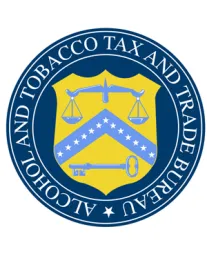On February 9, 2022, the US Treasury Department (Treasury) released a report with recommendations for how the Tobacco Tax and Trade Bureau (TTB), Federal Trade Commission (FTC) and Department of Justice (DOJ) can help drive competition in the beer, wine and spirits markets by stepping up conduct enforcement, adopting creative and nuanced theories of harm in merger reviews and implementing new regulations to decrease the burden on smaller industry participants.
IN DEPTH
TREASURY REPORT SUMMARY
-
Treasury released a report entitled “Competition in the Markets for Beer, Wine, and Spirits” in response to President Biden’s July 2021 Executive Order 14036 that assesses the current market structure and conditions of competition, including an assessment of threats to competition and barriers to entry.
-
Treasury’s report is based, in part, on hundreds of comments received from industry participants and paints a detailed picture of the current landscape for alcohol beverage distribution and sale across the United States.
-
The report focuses on how changes could benefit smaller participants in the beer, wine and spirits industry. Given that the stated goal of Executive Order 14036 was, in part, “to reduce the trend of corporate consolidation, increase competition, and deliver concrete benefits to America’s consumers, workers, and small businesses,” it is not surprising that the report is focused on analyzing how a shift in enforcement priorities may be able to help eliminate impediments that make it difficult for smaller producers, distributors and retailers to compete with the larger players in the industry. Treasury specifically recommends that TTB cease bringing cases against “smaller industry members whose conduct does not have obvious effects on competition” (i.e., the investigation several years ago against small wineries for ‘consignment sales’).
-
Treasury makes recommendation on enforcement priorities for FTC, DOJ and TTB. To address the market concentration concerns that the report describes, Treasury makes recommendations regarding how the TTB, FTC and DOJ should focus investigations and enforcement of mergers and conduct in each of the three tiers of the beer, wine and spirits markets: producers, distributors and retailers.
-
Many of the recommendations are likely to be pursued given that the Attorney General and FTC Chair were consulted. The report and its recommendations should be considered carefully as a clear indication of the kinds of issues that FTC and DOJ are likely to focus their investigations on in beer, wine and spirits because the report was developed “in consultation with the Attorney General [DOJ] and the Chair of the FTC.”
TREASURY’S KEY RECOMMENDATIONS
-
While there are myriad competition-focused suggestions in the report, we think the areas that are most likely to receive increased focus from FTC, DOJ and TTB are the following:
-
Anticompetitive Conduct: Treasury noted that FTC, DOJ and TTB have generally not brought any conduct cases on many theories of harm for which myriad complaints were received. Treasury suggests that TTB should act on these complaints and seek support from FTC and DOJ to bring joint cases and make use of the agencies’ combined and complementary authority. These three areas are likely to already be under scrutiny by TTB and will chart a new direction for enforcement priorities.
-
Category Management: Despite current TTB regulations preventing producers and distributors from providing more than “suggested shelf schematics” to retailers, Treasury noted there are many complaints of large producers and distributors acting as category captains and eroding the independence of retailers (through inducements or simply by controlling the planogram software), and this conduct may be hampering competition, reducing consumer choice and resulting in higher prices.
-
Tying: Despite a history of investigating tying arrangements, Treasury noted that no cases have been brought recently. Treasury, therefore, identified tying as an area for focus given the myriad complaints it has received regarding this kind of conduct—e.g., (i) distributor requires a retailer to buy undesired brands as a condition of buying its desired brands or (ii) a distillery requires a distributor to buy its non-premium brands as a condition to gaining access to the highly sought brand. This could also be an area of future focus with companies using non-alcoholic brands to leverage purchases in the alcoholic space.
-
Exclusive Conduct: A dominant distributor uses exclusive contracts with suppliers to impede effective competition by smaller distributors.
-
-
Mergers: In addition to continuing to analyze traditional competitive effects of transactions (horizontal overlaps) between producers or distributors, the report encourages investigating more nuanced theories of competitive effects:
-
Portfolio Effects (for example, a major brewer acquires craft brands):
-
Reducing incentives for distributors to carry or support other small craft brewers; and/or
-
Increasing the power of the brewer to receive added support from dominant distributors at the expense of smaller brewers.
-
-
Non-Geographic Overlaps:
-
When multistate distributors acquire distributors in new geographies, they can use their leverage to force producers to expand with it; or
-
If a distributor acquires a producer’s franchise distributor, it can then threaten harm to the producer if it attempts to move its business away in the non-franchise states.
-
-
-
Greater Transparency: Reworking laws and regulations to increase transparency with consumers and thereby increase competition and/or lower burden on smaller producers/participants:
-
TTB should engage in rulemaking on labeling, including ingredients, calorie and nutritional content, allergens, serving sizes and container sizes.
-
TTB should engage in rulemaking to eliminate container size requirements.
-
Revise complex application requirements to qualify for a permit to produce alcohol.
-
-
WHAT THIS MEANS
-
Given Treasury’s recommendations (and the tenor of the industry comments it quoted in the report), we expect TTB, together with FTC and DOJ, to shift its trade practice enforcement efforts and increase its scrutiny of conduct and mergers involving a large (particularly beer) producer or multistate distributor.
-
We expect increased enforcement with regard to category management, tying arrangements and exclusive contracts on large producers and distributors.
-
We also expect FTC and DOJ to closely review the impact of any mergers involving multistate distributors or large producers under theories of harm that are not typically investigated.
-





 />i
/>i
